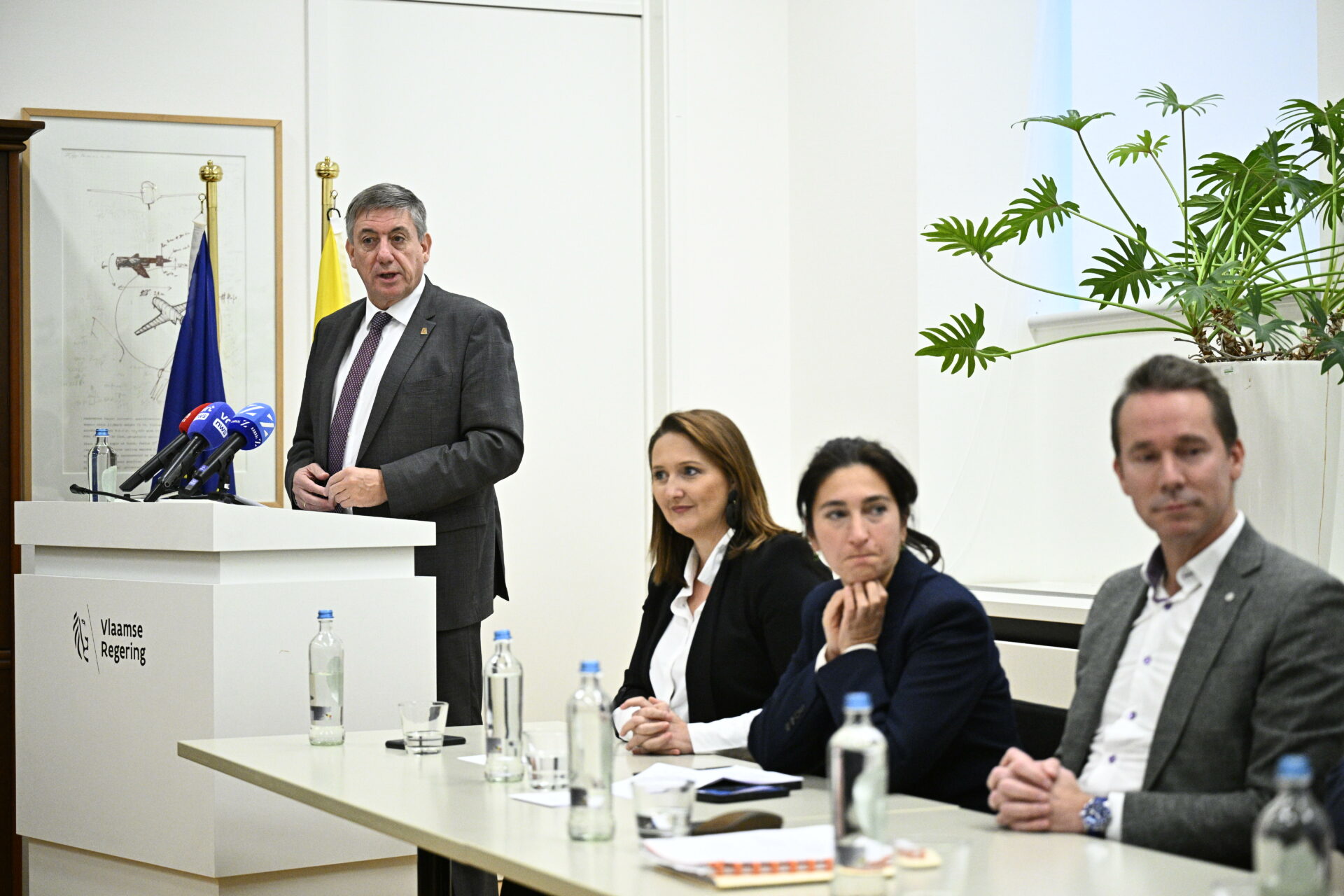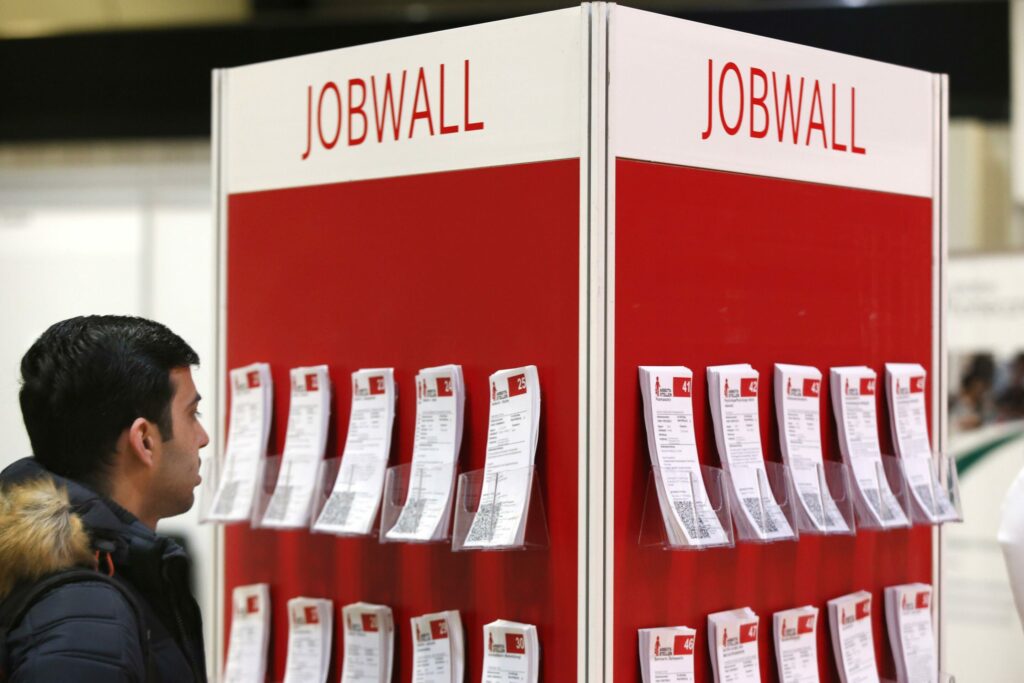The difference between working with a living wage or receiving unemployment benefits in Belgium comes down to €500 net or more – disproving the prevailing narrative that working does not pay off, according to new calculations by the University of Antwerp.
Nearly all political parties in Belgium state in their election manifesto that "working should pay off more." Several parties, particularly the Flemish rightwing N-VA and liberal Open VLD repeatedly stated that the difference between working and not working should become bigger.
"We will only join a government that really works to reward people who work better. The difference between working and not working should be €500," Open VLD leader Tom Ongena said a few weeks ago.
N-VA calculated how big the difference currently is and said that a single parent with one child who exchanges a living wage for a job would only get an extra €28.50 per month. For the party, this is the result of a too-high living wage, many social benefits and lower costs (such as favourable rates for energy, telephone and internet).
Untrue that working does not pay off
That figure, however, is in stark contrast to the calculations made by the University of Antwerp. In almost all cases the difference is significant, and it is currently already more than the €500 that Open VLD is fighting for, said professor of socio-economic policy Ive Marx.
"Politicians create the image that working does not pay in Belgium, but that is not true," Marx stressed. "It is highly exceptional and only in specific scenarios that working does not provide extra income."
He and his colleagues calculated how much it pays monthly to work, compared to receiving a living wage or long-term unemployment benefits. They did not take into account the additional costs or benefits that fall away, but neither did they take into account any premiums people get when they start working.

A VDAB information leaflet for jobseekers. Credit: Belga
When working full-time, the smallest difference is found in single-parent families, due to the fact that benefits are higher for people who have dependent children. In that case, working provides an extra €404, compared to a living wage.
For couples without children where one person has a job, the difference amounts to €600. For dual-income couples with children, the difference between income from work or from long-term unemployment benefits is almost double: €1,174.
Importantly, the unemployment benefits amount concerns the amount that people receive after four years of unemployment. For people who are unemployed for a shorter period, the difference between working and not working is smaller.
Opposite for part-time jobs
In some (exceptional) scenarios, working does indeed not pay off. As a single parent, working part-time costs money instead of saving it: the minimum wage in that case is approximately €450 lower than the amount received through unemployment benefits. In that scenario, a single-income couple also loses income – albeit slightly less.
In practice, however, this situation occurs very seldom: an unemployed person who starts working part-time can apply for a so-called "income guarantee benefit," which ensures that their total income is not below the unemployment benefit.
Marx's calculation immediately drew criticism from several politicians, mainly from the Flemish rightwing N-VA and liberal Open VLD parties. Flemish Minister for Interior Administration Gwendolyn Rutten (Open VLD) mainly questioned the fact that the comparison was made with four years of unemployment.
"Most people are unemployed for much less time and therefore have a much higher unemployment benefit," she said. "It is those people who have been unemployed for less than two years that we want to activate in the first place by increasing the difference. That is currently too low."

Flemish Minister-President Jan Jambon (N-VA), Flemish Minister of Domestic Policy Gwendolyn Rutten (Open VLD), Flemish Minister of Environment and Justice Zuhal Demir (N-VA) and Flemish Minister of Employment Jo Brouns (CD&V). Credit: Belga / Jasper Jacobs
On social media, Rutten also argued that the additional benefits and premiums associated with unemployment benefits have not been taken into account. The costs associated with a job (such as childcare) were also not counted.
Marx recognised that those elements were not included in the analysis. "The additional benefits when you start working are also not included. This concerns premiums, meal vouchers or the employer who contributes to transport costs."
Additionally, the calculations are based on the minimum wage. "In practice, very few people receive the minimum wage, people usually earn more. So the difference is even greater for many people than our calculations show," he stressed.
Related News
- Nearly all political parties in Belgium moving to the right
- Balancing the budget and a millionaire's tax: What Belgian parties' election proposals cost
- Sharp rise in unemployment in Belgium
Questions have been raised about whether these benefits are not too closely linked to a person's statute (such as 'benefits recipient' or 'unemployed') rather than to the level of their income, but Marx argued that this is not always the case.
"It is very complex. It is not true that all benefits are linked to statute instead of income. People who work, for example, are also eligible for social housing," he said.
Still, he recognised that the complexity of the system (who is entitled to which benefits) is a problem. "Even for researchers, it is difficult to figure out how the system works. Due to that lack of transparency, it is only logical that people are afraid of losing benefits."

